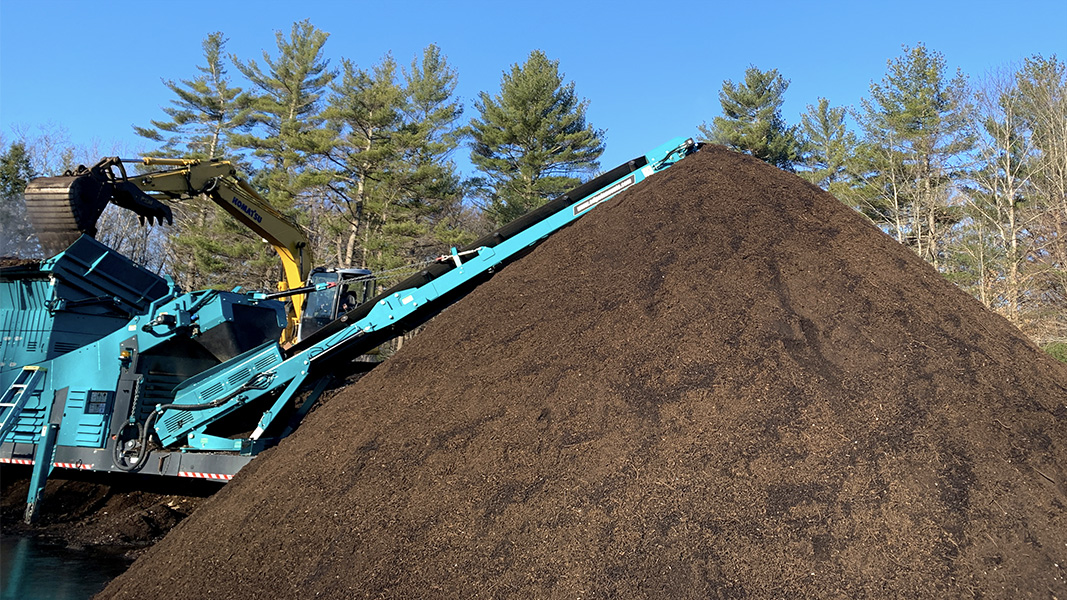Top: Finished product is sold in bulk, including a straight compost and an all-purpose potting blend.
John Watts has always been enthralled with the composting process. “I love the way you combine all the right ingredients in the correct proportions and make an amazing product,” exclaims Watts. He officially got into the business of composting in 2016, when he purchased an existing food waste collection and composting business, Mr. Fox Composting. Previously, he was building concrete houses, and thus had equipment such as front-end loaders and an excavator to use at the facility. For many years before actually becoming an ‘official’ compost manufacturer, Watts would collect dairy manure from a couple farms and experiment making compost with it.
Mr. Fox’s composting facility is in York, Maine, just across the border from Portsmouth, New Hampshire. “When the previous owner started, New Hampshire didn’t allow food waste composting, so he started the business in Maine,” explains Watts. “But our service area for food waste collection is primarily in New Hampshire, from right above the Massachusetts border in Seabrook to Kennebunkport, Maine which is a bit north of where we are. Generally, we try to stay within 40 miles of our composting facility. We can’t service everyone, and we need to service the customers we have well.”

Mr. Fox Composting services commercial food waste generators that are mostly within a 40-mile range of its composting facility. Photos courtesy Mr. Fox Composting
Both commercial and residential food waste collection are offered. All food waste is accepted, along with BPI-certified compostable bin liners and food-contact packaging. Due to concerns with invasive pests and plants, no yard waste is accepted. Wood chips and other local carbon sources are utilized instead. Mr. Fox Composting has several hundred commercial accounts, and several thousand residential accounts. Households are provided an 8-gallon bin with a locking lid. “We were using a different cart but switched to the current ones because they have a wide opening, making it easier for our customers to add their food waste,” says Michelle Raye, Operations Manager. “All customers use a compostable liner bag that we supply. Drivers remove the filled bag and tie a new bag onto the cart. Residential customers are serviced weekly or biweekly, depending on their location.” The company has three collection vehicles.
The composting facility is on a 30-acre farm. The site can accept up to 400 tons/month of food waste. Mr. Fox composts in aerated static piles on an asphalt pad. After about 10 weeks of active composting, the material is moved to a curing area. Most compost sales are in the spring, with a bit of an uptick in the fall. Finished compost is screened using a trommel. Two products are made — a straight compost and an all-purpose planting mix. All sales are in bulk. “We are experimenting with a third product,” adds Watts. “We try to sell everything we make within a year. Food waste compost is much different than compost made with yard waste only. It is biologically active and very diverse in its microbial profile. We like to tell people that they have to pay for the compost but the actinomycetes are free.”













